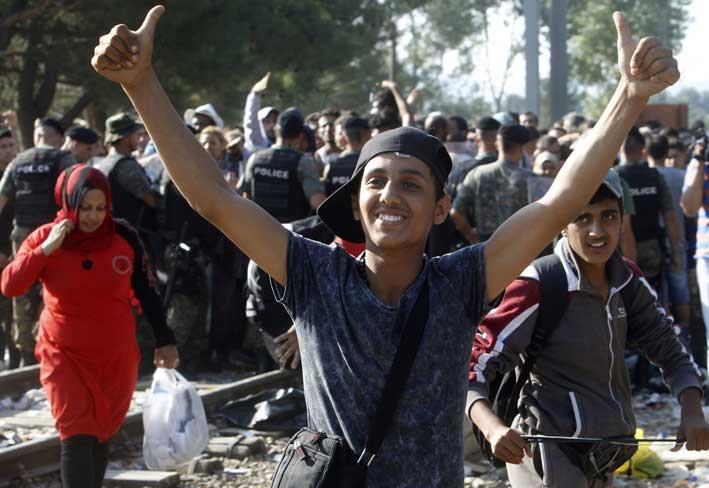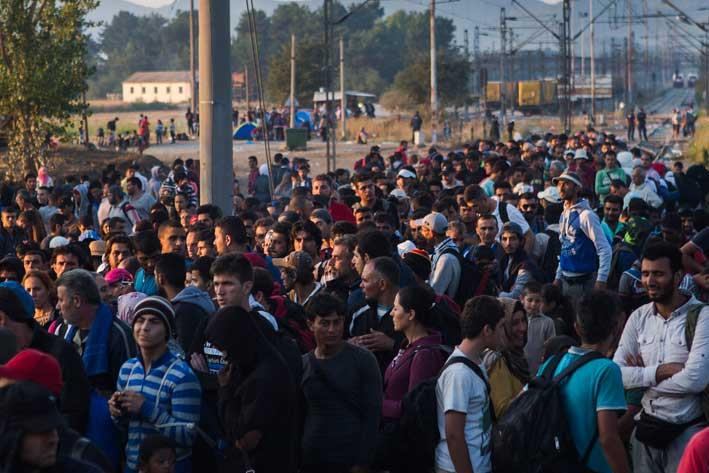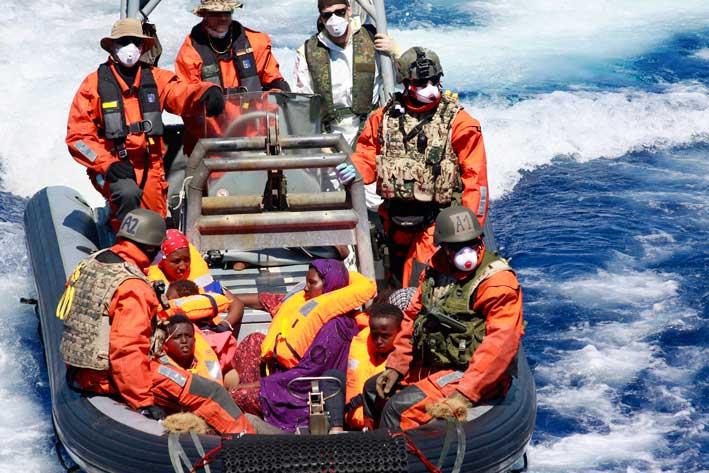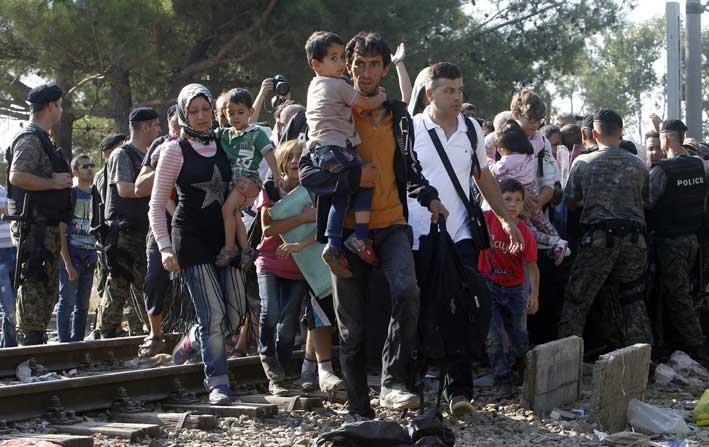The U.N.'s refugee agency said it expects 3,000 people to cross Macedonia daily in the coming days.
A spokeswoman for the U.N. High Commissioner for Refugees says it responded to the humanitarian needs of more than 10,000 refugees and migrants who arrived from Greece over the weekend, largely aiming to travel through to Serbia and beyond. Most are fleeing violence in Syria, Iraq and Afghanistan.
UNHCR spokeswoman Melissa Fleming told reporters in Geneva on Tuesday that the refugee situation in Macedonia has "calmed significantly from the chaotic scenes that you saw on your television screens late last week," but the agency remains "very concerned" about the conditions the travelers face.
Meanwhile, UNICEF said that over the past month, about 1,500 to 2,000 people on average have crossed Macedonia each day — about one-third of them women and children. Some migrant children traveling alone without adult relatives are "at greatesLatest developments across Europe as the continent struggles to manage its migrant influxt risk," it said.

EUROPEAN UNION: A U.N. human rights expert says fences, tear gas, threats and deprivation of food, water and shelter won't keep refugees and migrants away from the European Union.
Francois Crepeau, the U.N. special rapporteur on the human rights of migrants, says EU members should focus on controlling but not sealing borders, fighting anti-migrant sentiment and ensuring that migrants and asylum-seekers can move around, get jobs and integrate.
In a statement Tuesday, Crepeau said: "Let's not pretend that what the EU and its member states are doing is working. Migration is here to stay,"
Crepeau said EU officials should do more to counteract people-smugglers and create a massive resettlement program for refugees fleeing violence and persecution from places like Eritrea and Syria.

HUNGARY: A record number of migrants reached Hungary on Monday — 2,093 compared to a daily average of 1,493 in the last week.
Hungary is working to quickly erect a 4-meter (13-foot) high fence on the Serbian border to stop them.
Government spokesman Zoltan Kovacs said "unsustainable conditions" would develop in Budapest and other large European cities unless concerted efforts were made to establish "some kind or order or regularity" in the flow of migrants.
About 140,000 migrants have reached Hungary this year, over three times as many as in all of 2014, but most quickly leave for richer European Union countries like Germany or the Netherlands.

GERMANY: The German navy says a Somali woman gave birth on its frigate "Schleswig-Holstein" early Monday.
Rahma Abukar Ali, 33, was among 453 migrants aboard four ships rescued in the Mediterranean by a British ship Saturday and transferred to the German ship Sunday.
The defense ministry said in a statement Tuesday that baby Sophia — 49 centimeters big and weighing 3,000 grams (19.3 inches and 6.6 pounds) is the first to be born on board a German navy ship.
Mother and child were taken to hospital in Italy for postnatal care.

GREECE: Two Greek coast guard vessels are searching the waters off the eastern coast of the island of Lesbos for four people still missing after a dinghy carrying migrants or refugees capsized while making its way across from the nearby Turkish coast.
The search continued Tuesday, a day after the coast guard recovered two bodies and rescued six people after being alerted to the incident when a fishing boat picked up a man found in the sea.
The body of a third man was also recovered Monday night, but from a different part of the island, leading authorities to suspect he might have died in a separate incident.
Greece has been overwhelmed by more than 160,000 refugees and migrants so far this year. The vast majority arrive in Lesbos.